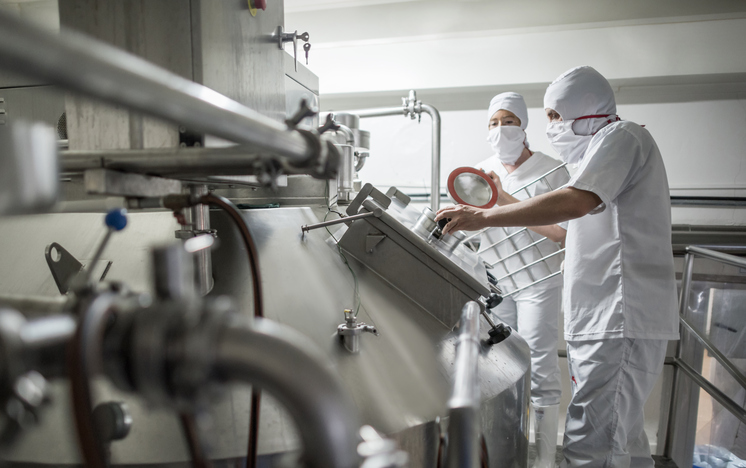- Home
- Science
- Our Work
- Air Pollution
- Agriculture, Farming and Pesticides
- Asthma and other Lung Diseases
- Coronavirus Pandemic (COVID-19)
- Exposure to Chemicals and Dust
- Exposure to Nanomaterials
- Human Exposure
- Neurodegenerative Diseases
- Musculoskeletal Disorders
- Occupational Cancer
- Sustainable Working
- Sustainability and Climate Change
- Stress, Wellbeing and Psychosocial Issues
- COVID-19 IOM Study of Face Coverings in Retail Environments
- Styrene Study
- PROTECT COVID-19 National Core Study
- Firefighters and Cancer – IOM Report
- MORtality Study of Former Professional Footballers in England and Wales (MORSE) Study
- Our Scientists
- Our Expertise
- Nano Material Services
- Development and Management of Data and Information Systems and Services
- Ergonomics Design and Evaluation
- Epidemiological Studies & Methods
- Exposure Assessment
- Health Impact Assessment (HIA) and Risk Assessment
- Policy Evaluations
- Study Design and Statistical Analysis
- Systematic Reviews and Meta-analyses
- Toxicology
- Workplace Cluster of Disease
- IOMLIFET
- IOM Scientists Advocate Tighter Standards for Airborne Dust at Work
- Research Project on Work Related Musculoskeletal Disorders
- Styrene Study
- Firefighters and Cancer – IOM Report
- IOM Library
- Contact our Research Experts
- Our Work
- Occupational Hygiene
- Case Studies
- Air Quality Sensors
- COSHH Assessment
- Dust Exposure
- Environmental Management
- Face Fit Testing
- Hand-Arm Vibration
- Indoor Air Monitoring
- Laboratory Animal Allergens
- Legionella Risk Assessment
- Local Exhaust Ventilation
- Noise Monitoring
- Thermal Exposure Monitoring
- Workplace Exposure Limits (WELs)
- Welding Fumes
- Remote Monitoring Services
- Formaldehyde Exposure Monitoring
- Biological Agent Exposure Monitoring in Waste Management
- Chromium VI
- Occupational Hygiene – Quick Quote
- Lab Services
- Asbestos and other Fibres
- Asbestos Sample Testing
- Asbestos Proficiency Testing
- Dust and Crystalline Silica
- Lead in Paint
- Metals, acid anions, acid gases
- Microbiology
- Pharmaceuticals
- Solvents & Other Organic Chemicals
- Hazard Assessment and Toxicology
- Dustiness Testing of Bulk Powders
- Lab Services Quick Quote
- Training
- Courses
- Face Fit Tester Training – Combined 2-day Course
- Face Fit Tester Training – Day 1 Qualitative Test Method
- Face Fit Tester Training – Day 2 Quantitative Test Method
- One Day Ventilation Maintenance Course
- BOHS Five Day Authorised Person (Ventilation) Course
- BOHS Three Day Competent Person (Ventilation) Course
- BOHS Two Day Competent Person (Ventilation) Refresher Course
- Contact our Training Team
- Courses
- Hospital Ventilation
- Authorising Engineer
- Dentistry Post Lockdown
- Design Review
- Independent Review
- Diathermic pen and Electro surgical tool testing
- Microbiological Monitoring
- Systems Refurbishment and Upgrade
- Validation and Verification Testing
- HSE COVID-19 Spot Check Inspections
- Training
- Contact Our Hospital Ventilation Experts
- Consultancy
- Our Company
- Contact Us

We develop tools for modelling and measuring exposure and carrying out assessment studies to identify and eliminate dangerous exposures for people in the workplace, home and wider environment.
Human Exposure Assessments
Humans are exposed to many pollutants and substances knowingly and unknowingly on a day-to-day basis. Some of these can be deadly or cause ill health. To mitigate health impacts an exposure assessment is needed to understand the likelihood of adverse effects.
Human exposure assessments determine what is acceptable and what has human health consequences. Our scientists cover both occupational and non-occupational environments, including exposure in the workplace, home and wider environment. Routes of exposures include inhalation, dermal, and (inadvertent) ingestion exposure.
Our scientists have developed the assessment of dermal exposure, leading to the articulation of new principles of exposure assessment, the development of predictive exposure models, and investigations into dermal exposure under specific working conditions.
The work has a multidisciplinary approach with projects across the organisation and we collaborate with scientists in other organisations in the UK, Europe, and elsewhere around the world.
What our scientists do:
Our scientists played a key role in defining the internationally agreed size fractions of dust relevant to human lung disease, i.e. inhalable, thoracic, and respirable. New methods of laboratory analysis of the mineral content of coal dust also helped clarify the role of quartz and other components.
Our exposure scientists participate on various external scientific committees e.g. BSI, CEN, and ISO standards committees, expert working groups (e.g. WHO, OECD) as well as scientific advisory groups.
Key projects
- SHECAN project
- Evaluation of the tier 1 exposure assessment models (e-team)
- Advanced REACH tool (ART)
- HBM4EU Science and policy for a healthy future
- Health Interventions in Volcanic Eruptions (HIVE) HIVE
- Health and Environment-wide Associations based on Large population Surveys (HEALS)
- Improving exposure assessment methodologies for epidemiological studies on pesticides (IMPRESS)
Sponsors we have worked for
- European Commission
- EU-OSHA
- UK Government (Public Health England & Scottish Government)
- BAuA Germany
- MOM Singapore
- European Chemical Industry
- European Oil Industry
In the UK alone 1300 deaths each year are estimated to be lined to past exposure at work primary to chemicals or dust.




